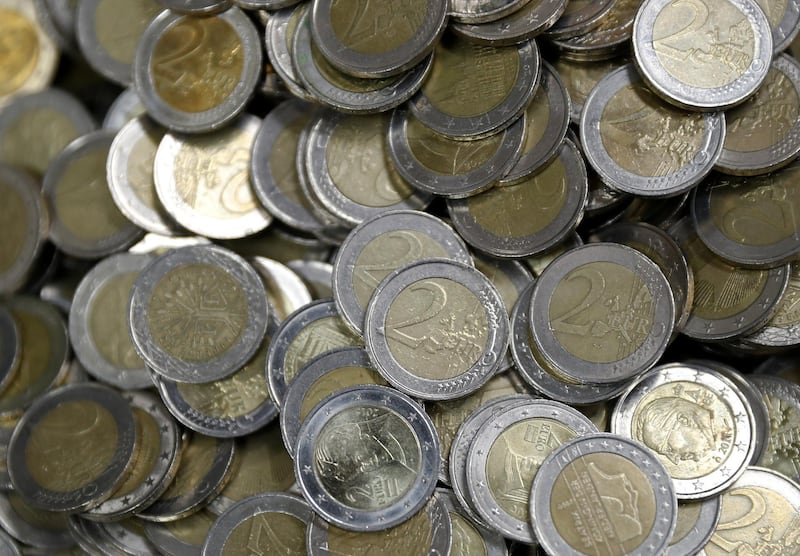The euro hit a two-month low against the yen on Monday, as German Chancellor Angela Merkel’s efforts to form a three-way coalition government failed, stoking political uncertainty in the euro zone’s largest economy.
Mrs Merkel, whose conservatives were weakened after they won an election in September with a reduced number of seats, said she would inform the German president that she could not form a coalition, after the pro-business Free Democrats (FDP) withdrew from negotiations.
The development leaves Germany with two unprecedented options in the post-Second World War era: Mrs Merkel forms a minority government, or the president calls a new election if no government is formed.
The euro slid broadly in early Asian trade after the break down of the German coalition talks, but later pared some of its losses.
Mrs Merkel’s conservative bloc, which won the largest proportion of votes in the September election, will probably be able to form a minority government, said Steven Dooley, currency strategist for Western Union Business Solutions in Melbourne.
“They’ll be able to rule in a minority government. It just makes things a little bit more awkward for them but I don’t think it’s really a massive game-changer,” Mr Dooley said.
Against the yen, the euro was last down 0.6 per cent on the day at ¥131.43. At one point, the euro slipped to ¥131.16, its weakest level since mid-September.
The euro fell 0.5 per cent against the dollar to US$1.1735, pulling away from a one-month high of $1.1862 set on Wednesday last week.
The euro’s retreat helped support the dollar against a basket of six major currencies, with the dollar index edging up 0.3 per cent to 93.968.
Against the yen, the dollar held steady at ¥112.01, having set a one-month low of ¥111.89 earlier on Monday.
_____________
Read more:
German coalition talks collapse as FDP walks out
Europe's financial centres compete to woo financial firms away from London
_____________
With the euro hobbled by political uncertainty in Germany, and the outlook for the dollar clouded by factors such as lingering doubts over the prospects for US tax reforms, some market participants said the yen could push higher in the near-term.
“If you can’t buy the dollar and you can’t buy the euro, then the yen will strengthen, as you’re seeing now,” said Satoshi Okagawa, the senior global markets analyst for Sumitomo Mitsui Banking Corporation in Singapore.
If the euro tumbles further versus the yen, that may spill over into the dollar, and open the way for the US currency to test levels below 110 yen by year-end, Mr Okagawa said.
The near-term focus will be on how European markets react to the political developments in Germany, he added.
On US tax reforms, the president Donald Trump predicted on Sunday that the senator Jeff Flake will oppose the Republican tax bill, but the senator’s office says he has not yet made up his mind.
The position of individual Republican senators on the tax bill has become the focus of those trying to determine whether it will pass because Republicans control only 52 seats in the Senate. More than two Republican defections would likely kill the bill.






